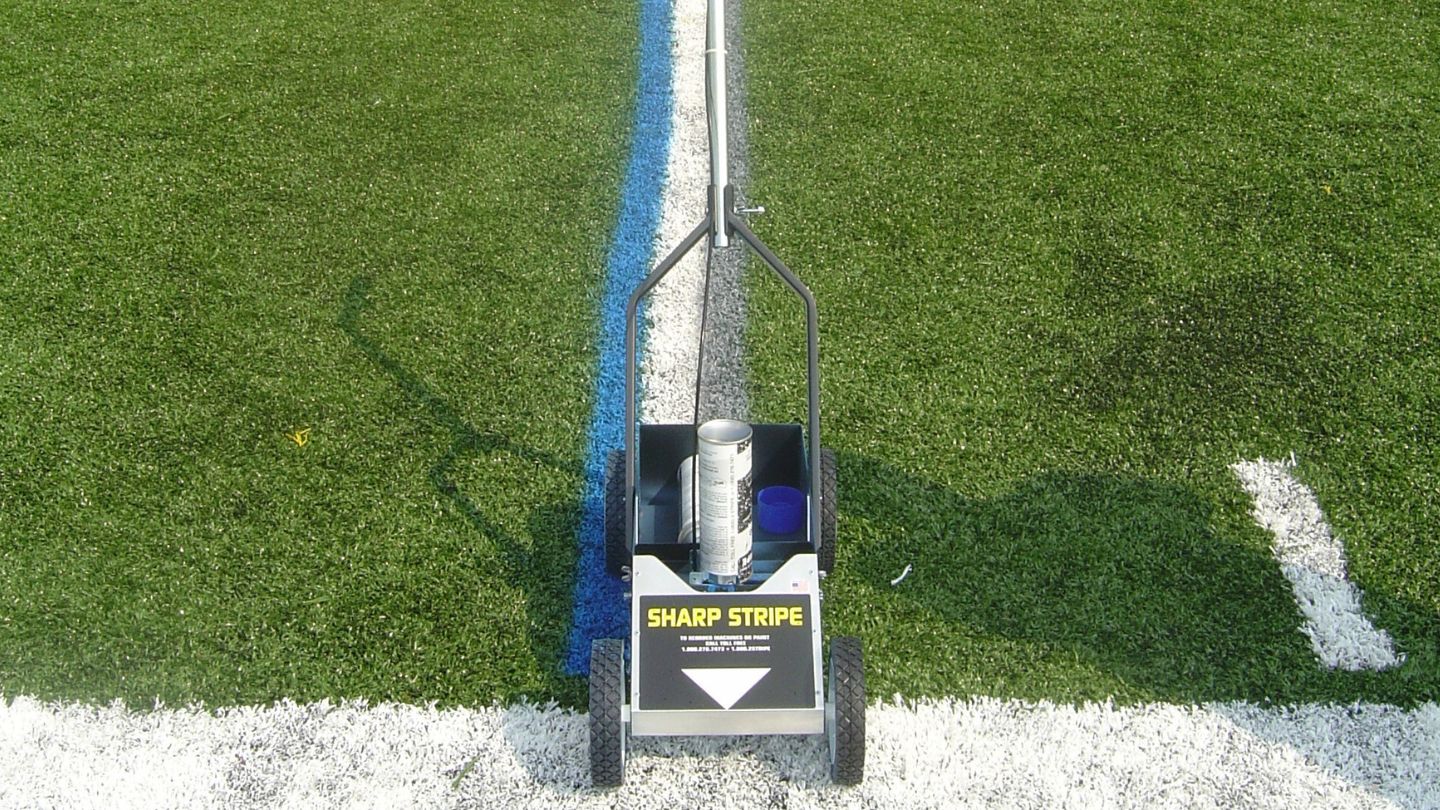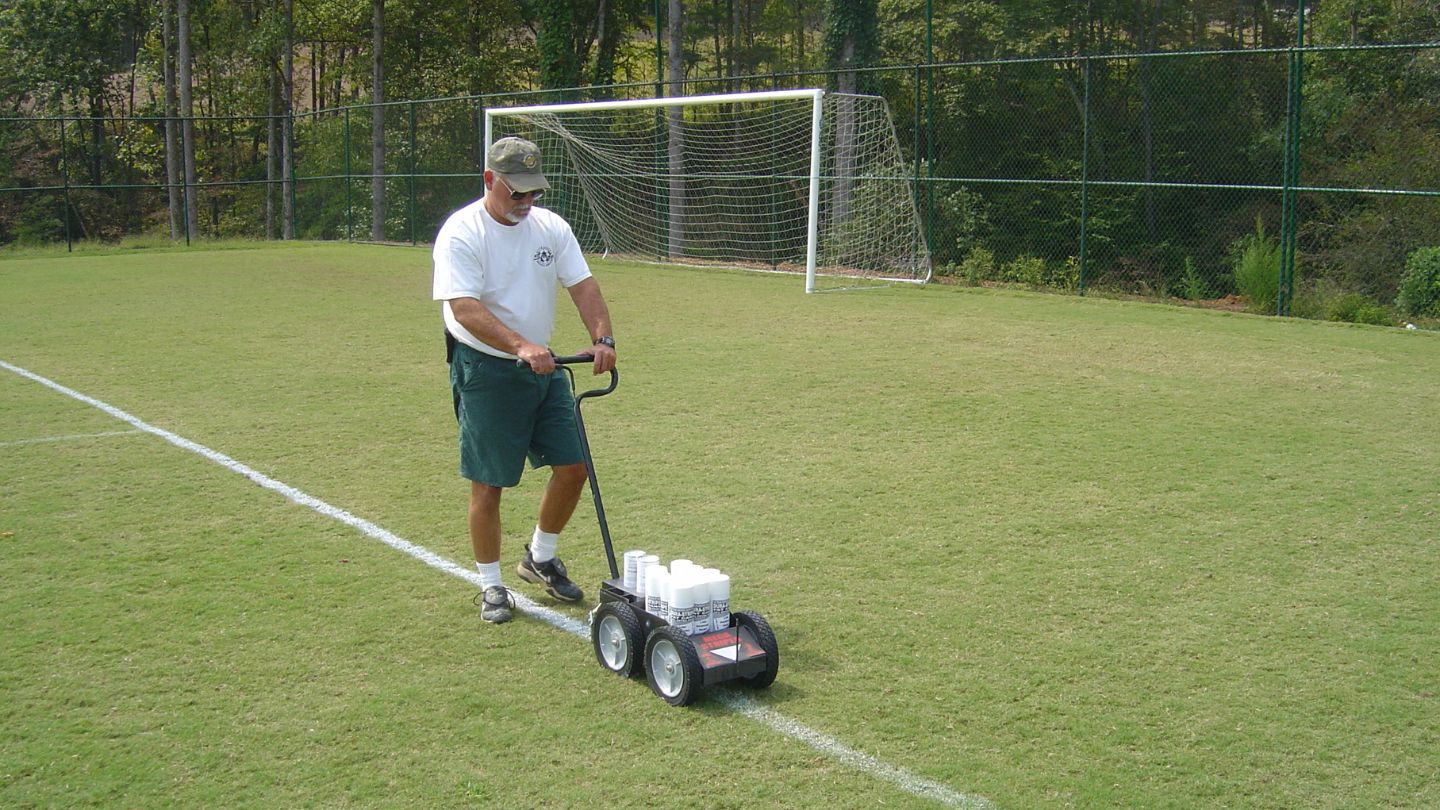
Specialty Coatings 101: Types, Applications, and Long-Term Benefits
Specialty coatings play a pivotal role in protecting surfaces from wear, corrosion, and environmental damage. They help maintain structural integrity, extend the lifespan of materials, and enhance both aesthetics and performance across industries. From industrial equipment to architectural finishes, these coatings ensure lasting protection under demanding conditions. Their advanced formulations also improve energy efficiency and reduce maintenance needs. In this blog, we highlight the key types of specialty coatings, their diverse applications, and the long-term benefits they deliver.
Key Takeaways
- Specialty coatings provide enhanced durability, protection, and performance in harsh environments, with specific types designed for anti-corrosion, fire resistance, UV resistance, and chemical resistance.
- These coatings are crucial across various industries, including aerospace, automotive, construction, and marine, ensuring asset longevity and functionality while contributing to cost savings through reduced maintenance requirements.
- Innovations in specialty coatings focus on eco-friendly formulations and advanced technologies, such as self-healing properties, to improve protective capabilities and align with sustainability goals.
Understanding Specialty Coatings
Specialty coatings are high-performance solutions formulated with unique materials for particular roles. These coatings go beyond mere decoration and protection; they offer superior durability and resistance to harsh conditions, making them essential in various industrial applications. Innovations in coating technologies continually enhance their functionality and effectiveness, ensuring that they remain at the cutting edge of material protection.
What sets specialty coatings apart are their unique characteristics. They provide additional functionalities such as protection against moisture, UV rays, and temperature fluctuations, leading to improved durability and performance in various applications. For instance, epoxy coatings are renowned for their superior corrosion resistance, while polyurethane coatings offer excellent abrasion resistance and flexibility. These coatings protect substrates from chemical, mechanical, and environmental degradation, making them indispensable in industries like aerospace and automotive.
Achieving optimal results with specialty coatings requires careful preparation of various surfaces and matching to harsh environments, as well as effective application techniques. Proper surface preparation, including cleaning and repairing surfaces, is critical for ensuring adhesion and durability.
Using the correct tools and adhering to the manufacturer’s instructions greatly impacts the quality of the coating application. Applying coatings with smooth, overlapping strokes and letting each layer dry fully minimizes defects, resulting in a durable, protective finish.
Types of Specialty Coatings
 Specialty coatings are designed to provide enhanced durability, protection, and performance compared to standard paints. These coatings serve various functional categories, including anti-corrosion, fire resistance, and UV resistance, each tailored to meet specific industry needs. The protective and functional properties of specialty coatings enhance durability, safety, and aesthetics across different applications.
Specialty coatings are designed to provide enhanced durability, protection, and performance compared to standard paints. These coatings serve various functional categories, including anti-corrosion, fire resistance, and UV resistance, each tailored to meet specific industry needs. The protective and functional properties of specialty coatings enhance durability, safety, and aesthetics across different applications.
Several types of specialty coatings offer unique benefits for specific applications:
- Anti-corrosion coatings
- Fire-resistant coatings
- UV resistant coatings
- Chemical-resistant coatings Each type offers unique benefits and is suited for specific applications, providing the right coating for every need.
Anti-Corrosion Coatings
Anti-corrosion coatings are crucial for protecting materials from corrosive environments and minimizing deterioration caused by moisture, salt spray, and chemicals. These specialty coatings act as a barrier against moisture and chemicals, significantly reducing the risk of rust on metal surfaces. High humidity and salty air create challenging conditions that require coatings with superior corrosion resistance, making these coatings indispensable in marine and coastal applications.
Anti-corrosion paints are highly recommended for metal surfaces because they improve corrosion resistance and extend the lifespan of the material. These coatings prevent rust and degradation by acting as a protective barrier, ensuring metal structures remain intact and functional for extended periods. This increased durability translates into cost savings by reducing the need for frequent maintenance and replacements. Additionally, anti graffiti paints can further enhance the protection of these surfaces.
Fire-Resistant Coatings
Fire-resistant coatings are widely used in construction and aerospace industries to enhance safety. These coatings play a vital role in maintaining structural integrity during fire incidents, often providing critical evacuation time. Intumescent coatings, for example, expand upon exposure to heat, forming foam-like layers that provide thermal insulation and protect the underlying material.
Another type of fire-resistant coating is the thermal barrier coating, which protects materials against high temperatures, helping to maintain their structural integrity. These coatings are essential for ensuring the safety of buildings and aircraft, as they can withstand extreme heat and prevent the spread of fire, ultimately saving lives and reducing property damage.
UV Resistant Coatings
UV resistant coatings function by absorbing or reflecting harmful ultraviolet rays, thus preventing damage to the underlying material. These specialty coatings are particularly important for surfaces exposed to prolonged sunlight, as they strengthen the material’s resistance against degradation over time caused by UV radiation exposure. This ensures longevity and helps retain the original color and finish of surfaces.
In addition to protection, UV resistant coatings also provide aesthetic benefits by preventing fading and maintaining the appearance of exterior applications and outdoor applications. Whether used on buildings, vehicles, or outdoor furniture, coatings ensure that surfaces remain vibrant and visually appealing despite exposure to harsh sunlight.
Chemical Resistant Coatings
Chemical resistant coatings play a critical role in protecting surfaces exposed to harsh chemicals. These specialty coatings ensure longevity and maintain the structural integrity of the surfaces they protect, making them ideal for industrial applications where chemical exposure is common. Ceramic coatings, for instance, possess unique characteristics such as improved durability, corrosion prevention, and chemical stability.
Chemical-resistant protective coatings create a robust barrier, helping surfaces withstand harsh conditions and harmful chemicals, thus reducing damage and degradation risks. This increased durability translates into significant cost savings by minimizing the need for repairs and replacements over time. The chemical resistance of these coatings further enhances their effectiveness.
Applications of Specialty Coatings
 Specialty coatings offer protective and functional properties that extend the lifespan and enhance the performance of various materials. These coatings are used in diverse sectors such as military, power utilities, water treatment, and manufacturing for their protective properties. Various industrial sectors, including aerospace, automotive, construction, and marine, rely on specialty coatings to ensure the longevity and functionality of their assets.
Specialty coatings offer protective and functional properties that extend the lifespan and enhance the performance of various materials. These coatings are used in diverse sectors such as military, power utilities, water treatment, and manufacturing for their protective properties. Various industrial sectors, including aerospace, automotive, construction, and marine, rely on specialty coatings to ensure the longevity and functionality of their assets.
We will explore the applications of specialty coatings in specific sectors such as aerospace, automotive, construction, and marine. Each sector benefits uniquely from these coatings, showcasing their versatility and importance in maintaining and enhancing industrial applications. In construction projects where moisture and chemical exposure are constant concerns, incorporating a specialty coatings for concrete solution strengthens surfaces and provides long-lasting resistance to abrasion, UV rays, and harsh weather.
Aerospace Sector
In the aerospace field, specialty coatings are utilized not only for protection but also to reduce drag, enhancing fuel efficiency. These coatings play a critical role in the aerospace sector by providing necessary protection and functionality, ensuring that aircraft can withstand extreme environmental factors while maintaining structural integrity.
This translates into safer, more efficient flights, ultimately benefiting both the industry and its customers.
Automotive Industry
Specialty coatings play a crucial role in the automotive industry by enhancing both aesthetics and durability of vehicles. These coatings:
- Improve the visual appeal of cars
- Provide protective properties that significantly extend the lifespan and performance of vehicles
- Resist scratches
- Resist chemical spills
- Resist UV damage
These features ensure vehicles stay in top condition longer periods, despite normal wear and tear, contributing to improved performance.
By applying specialty coatings, automakers can produce vehicles that look better and perform exceptionally well over time. This leads to long-term benefits for consumers, including reduced maintenance costs and higher resale values, making specialty coatings an essential component in the automotive sector.
Construction Sector
Specialty coatings play a vital role in the construction sector by protecting structures from elements, enhancing durability and safety, and improving aesthetic appeal. Architectural coatings, for example, protect buildings from moisture, UV rays, and other damaging elements, ensuring longevity against harsh environmental conditions. These coatings offer vibrant and durable finishes that contribute to the aesthetic appeal of buildings while minimizing maintenance costs.
Using specialty coatings reduces the frequency of repairs and maintenance, making it crucial for maintaining a professional appearance in commercial spaces. This ensures long-term protection and enhances visual appeal, benefiting construction projects over time with interior coatings.
Marine Industry
Marine specialty coatings are critical for vessels as they not only deter corrosion but also withstand harsh saltwater conditions. In marine and infrastructure industries, anti-corrosion coatings are predominantly used to protect against rust and deterioration. Employing corrosion control practices in marine operations could save up to $875 billion yearly by reducing the need for frequent maintenance and replacements.
By protecting vessels from the harsh marine environment, these specialty coatings ensure the longevity and functionality of ships, platforms, and other marine structures. This not only enhances safety but also contributes to significant cost savings in the long run.
Long-Term Benefits of Specialty Coatings
 Specialty coatings enhance durability, performance, and appearance across various industries. These coatings provide:
Specialty coatings enhance durability, performance, and appearance across various industries. These coatings provide:
- Protection
- Enhanced performance
- Improved aesthetics making them a valuable investment for any project. High-quality architectural coatings:
- Reduce the need for reapplications and repairs
- Lead to significant long-term savings.
We will explore the long-term benefits of specialty coatings in detail, focusing on improved durability, cost savings, and enhanced performance. Each of these benefits contributes to the overall value and effectiveness of specialty coatings in various applications.
Improved Durability
Anti-corrosion coatings are essential for maintaining the integrity of industrial equipment, significantly extending their lifespan. These specialty coatings contribute to the extended lifespan of various structures, making them more durable and reliable. For example, epoxy coatings offer high temperature resistance, up to 1,400 degrees Fahrenheit, which enhances the durability of coated materials.
Overall, specialty coatings enhance the durability of materials, making them suitable for various challenging environments. In the automotive sector, coatings are used to resist scratches and chemical spills, thus extending vehicle lifespan. This increased durability translates into significant cost savings by reducing the need for frequent maintenance and replacements.
Cost Savings
In construction, specialty coatings can significantly lower maintenance demands and costs over the building’s life. Architectural coatings provide an extended lifespan of the building and reduce maintenance costs, making them a cost-effective choice for long-term projects. By enhancing the cost-effectiveness of various structures, specialty coatings contribute to significant savings in both maintenance and replacement over time.
Utilizing specialty coatings leads to significant cost savings in both maintenance and replacement over time. These savings, combined with the increased durability and performance of coated materials and coats, make specialty coatings a wise investment for any industry.
Enhanced Performance
In the aerospace industry, specialty coatings:
- Protect from environmental factors
- Enhance durability
- Reduce maintenance costs
- Improve aesthetic appeal
Thermal barrier coatings, for instance, enhance the performance and longevity of engines and machinery by providing critical protection against extreme temperatures. These coatings significantly enhance the overall performance of coated materials by providing protective and functional benefits.
Specialty coatings offer superior performance in harsh conditions, ensuring coating materials and structures withstand extreme temperatures, high traffic, and certain coatings of powder coatings other demanding environments. This leads to improved efficiency and reliability, making specialty coatings an essential component in various industrial applications.
Environmental Impact and Sustainability
 In today’s world, the environmental impact of industrial processes is increasingly important. Manufacturers aim to create specialty coatings that are non-toxic and have minimal ecological impact. When selecting a coating, it’s crucial to consider project needs and the environmental impact of the materials used. This careful consideration ensures that the chosen coatings align with sustainability goals and regulatory requirements.
In today’s world, the environmental impact of industrial processes is increasingly important. Manufacturers aim to create specialty coatings that are non-toxic and have minimal ecological impact. When selecting a coating, it’s crucial to consider project needs and the environmental impact of the materials used. This careful consideration ensures that the chosen coatings align with sustainability goals and regulatory requirements.
Water-based coatings are favored for their environmental benefits, emitting fewer harmful chemicals and requiring easier cleanup. Modern coatings systems emphasize achieving carbon-dioxide-neutral systems to enhance sustainability. Innovations in this field focus on reducing volatile organic compounds, eliminating harmful chemicals, and incorporating biobased, compostable, biodegradable, and recyclable materials. These advancements make specialty coatings not only effective but also environmentally friendly.
Sustainable practices in specialty coatings play a significant role in mitigating the environmental impact of industrial applications. Choosing eco-friendly coatings allows industries to contribute to a greener planet while achieving necessary durability, energy efficiency, and performance. This balance between functionality and sustainability is essential for future-proofing industrial practices and promoting environmental friendliness.
Technological Innovations in Specialty Coatings
The field of specialty coatings is continually evolving, with technological innovations leading the way. Nanotechnology, for instance, is instrumental in developing next-generation functionalities in coatings, including self-healing and superhydrophobic properties. These advancements enhance the protective capabilities of coatings, making them more effective in a variety of applications.
Recent developments focus on utilizing eco-friendly formulations and improving water-based systems. Innovations like waterborne polyamide polyurethane dispersion technology offer new performance levels, ensuring that coatings provide superior protection while being environmentally friendly. Ultra-high-performance weathering coatings now offer similar performance to fluorinated resins but at a lower cost, making them more accessible.
Future trends in specialty coatings are expected to exhibit unprecedented properties that enhance protection and functionality. Innovations focus on creating new technologies aimed at improving water-based systems and enhancing early water resistance to mitigate spotting issues. These advancements will ensure that specialty coatings continue to meet the evolving needs of various industries.
Choosing the Right Specialty Coating
Selecting the right specialty coating is crucial for ensuring the effectiveness and longevity of the application process. It’s essential to consider factors such as:
- The application method
- Surface material
- Environmental conditions
- Required durability
Each method, whether spraying or rolling, impacts the coating’s effectiveness and longevity, so understanding these variables can make all the difference.
Budgeting for the coating involves considering not just the initial cost but also long-term maintenance and durability to avoid future expenses. Assessing these factors and understanding your project’s specific needs will help you select the right coating for optimal protection and performance.
Ensuring Lasting Protection and Performance
Specialty coatings are essential for extending the life of surfaces exposed to moisture, UV rays, chemicals, and heavy wear. By strengthening structures and minimizing maintenance needs, these advanced coatings deliver long-term performance, cost savings, and enhanced aesthetics across residential, commercial, and industrial applications. Their ability to provide both functional protection and visual appeal makes them a smart investment for any project.
At US SPECIALTY COATINGS, we offer advanced solutions such as concrete protective coating to defend surfaces against harsh conditions and preserve their integrity. Our team is ready to help you select the right specialty coating products and provide expert guidance to achieve durable, high-performance results tailored to your specific requirements.
Frequently Asked Questions
What are specialty coatings?
Specialty coatings are high-performance solutions designed with specific materials for enhanced durability and protection, tailored for particular applications. They offer superior performance compared to standard paints.
What are the benefits of anti-corrosion coatings?
Anti-corrosion coatings significantly enhance the durability of materials by protecting them from corrosive environments, moisture, and chemicals, thereby extending the lifespan of metal surfaces. Investing in such coatings is essential for maintaining structural integrity and reducing long-term maintenance costs.
How do fire-resistant coatings work?
Fire-resistant coatings work by forming insulating layers that protect materials from high temperatures, thereby maintaining structural integrity during fire incidents. These coatings include intumescent and thermal barrier options, which enhance fire safety.
Why are UV resistant coatings important for outdoor applications?
UV resistant coatings are crucial for outdoor applications as they absorb or reflect harmful ultraviolet rays, thereby preventing damage and degradation of materials and maintaining the original appearance of surfaces exposed to sunlight.
How do specialty coatings contribute to environmental sustainability?
Specialty coatings significantly enhance environmental sustainability by utilizing eco-friendly formulations that reduce volatile organic compounds (VOCs) and harmful chemicals while also incorporating biobased, compostable, and recyclable materials. These innovations help minimize the ecological footprint of various applications.
